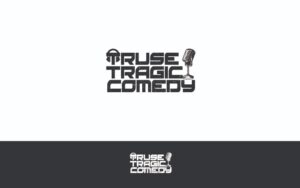
In 1998, my wife and I attended a performance of the Broadway musical Titanic. It had won lots of Tony Awards, and tickets were highly coveted; the stage design included a large “ship” that actually shifted during the performance. The show had been described as “magical,” though when it comes to Broadway, that’s not a rarely used adjective. Even now—over 20 years later—the Act II opener “Wake Up, Wake Up!” is still seared in both our minds, and has been sung many times in our household to awaken sleeping children.
We enjoy the song in a way that’s completely counter to its intent. Meant to be a rousing, heartstring-tugging alarm of impending doom, it struck us both (and still does) as a perfect example of the silly cheesiness that is the hallmark of the Broadway musical. Compared to the Titanic musical, the 1998 movie with Leonardo DiCaprio and Kate Winslet is positively subtle.
Come on, you might be saying—”Titanic is a big story about a big ship, it’s entitled to be big and blustery.” Well, yes. And I do enjoy drama in art, particularly in music; I answered affirmatively to the question, “Does emotional music have quite an effect on you?” when administered the Oxford Capacity Analysis test at a Scientology center near Times Square—ironically, while killing time waiting for a Broadway show later that evening. Some of my favorite music, 1970s progressive rock, is known for its lengthy, dramatic story-songs. So you might think I’d be forgiving about the over-the-top affronts of musicals. But you’d be wrong.
Over the years, my impression of musicals has only been reinforced, despite brief (and quickly dashed) glimmers of hope. The musical has earned a place alongside country music and opera as an artistic genre that, with few exceptions, sends shivers down my spine for all the wrong reasons.
This year has provided possibly the best opportunity I’ll ever have to get past my personal bias against musicals, with two staged reading (and singing) performances, based on subjects of longtime interest to me. The first was a musical version of Moby Dick, performed at New York’s American Museum of Natural History, in the Hall of Ocean Life, a room famous for the giant model of a blue whale that hangs from the ceiling. The setting was near-perfect, as was the first song, a stirring adaptation of a chapter from Melville’s novel. The song’s notable flaw was the inclusion of the phrase “truth to power,” one of several examples during the night of shoehorning in modern, politically correct buzzwords where they don’t naturally fit. It’s a crime that’s common to recently written musicals, a wink-nod opportunity that apparently can’t be resisted, even at the cost of jarring viewers and distracting from the sense of immersion that might otherwise be created.
I enjoyed much of the night’s performance, even a strange whale-song themed piece—despite the inclusion of some gratuitous, ripped-from-the-(current)headlines environmental commentary. But in classic musical style, the cheese was squeezed in, perhaps best demonstrated with a song about whale oil in which the lyrics “Squeeze! Squeeze! Squeeze! Oh, all the morning long!” are sung. Five times.
The Crossing and the Ten Crucial Days also scored big points for appropriate setting, performed at Washington Crossing State Park in Pennsylvania. Yet despite its substantial merits, it fell victim to similar problems. Maybe, as with Pecorino Romano and other foodstuffs, there’s a certain percentage of authentic cheese required in order for a musical to earn its designation. Here, it was the full cast singing “Auf Wiedersehen” after the Continental Army defeated the Hessians at Trenton.
There’s usually a weakness somewhere, and thus, the combination of story, dialogue, songs, humor, and dance in a single show almost always seems to result in something less than the sum of its parts. There’s a level of cleverness and literate wit in many musicals, and there are, of course, a number of classic songs that originated there. But there are also a lot of really bad songs, and a lot of sophomoric humor—some might demote it to middle-school humor.
Maybe that’s appropriate, since musicals are the lifeblood of middle and high school drama programs. A necessary evil, perhaps, since most teens don’t have the acting experience to pull off a main role in a non-musical play, and musicals usually allow for a large number of secondary cast members.
Conveniently, Disney has created middle-school friendly “junior” versions of many of its well-known stories: Aladdin, Frozen, The Lion King, The Little Mermaid… the list goes on. But it’s not just Disney that’s gotten into the “junior” act—Fiddler on the Roof Jr., anyone? There’s even a seemingly redundant junior version of Bugsy Malone, the 1976 feature film musical that had an all-kid cast. So, while we did attend a very good, student-cast, non-musical production of Agatha Christie’s And Then There Were None a couple of years ago at the Hun School of Princeton, that was a rare exception to the school musical rule.
Every so often, someone tries to convince me that I just haven’t seen the right musicals. One by one, they set out their recommendations, and one by one, my opinion is solidified. Schoolhouse Rock Live! (or Schoolhouse Rock Live! Jr.)? I love the songs, but they stand just fine on their own—and the same can be said for a lot of so-called “jukebox musicals,” which take a bunch of songs people like, add a patchworked narrative framework, and voilà! Instant musical.
Rent? I can’t sign that lease. Cats? I guess I’m a dog person, or at least a non-singing cat person. The Book of Mormon, or Hamilton?
Hmm. Those last two bring me to my final, admittedly non-aesthetic objection to the musical: cost. Although I’ve “seen” much of both shows in cobbled-together form via YouTube and liked what I saw, I’m not ready to mortgage my house for a chance to experience them live.
As for those who experience major mirth, or even general pleasure, listening to the “Major-General’s Song” from Gilbert & Sulllivan’s The Pirates of Penzance… to each his own. To paraphrase Miss Jean Brodie, for those who like this sort of thing, this is the sort of thing they like.
To those true theater fans: if my description of Titanic piqued your interest, rejoice! A revival is on course to crash into the Great White Way in 2020. Be warned, though—there will be lots of singing, and it probably won’t end well.






